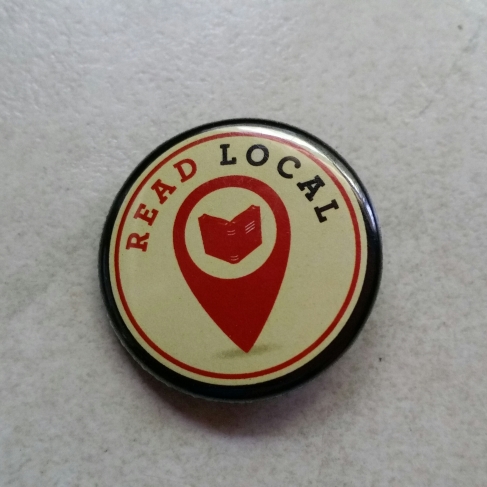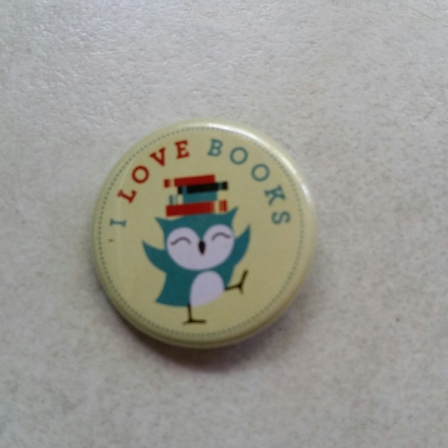
A new term, a new student, and returnees – the first day of the Writing for Pleasure Class at Mordialloc pure joy!
The above sign (doctored to suit the blog) necessary because the building works next door to the House still evident, and in fact there doesn’t seem much progress since before the holidays – although I’m sure there will be people more knowledgeable than me who will tell me that digging a big hole takes time.


The next photograph may show the extent of the ‘big hole’ better… and here is a link to my blog in October last year when the excavation started.

The redevelopment of the block for apartments will take time – a good metaphor for many writing projects. A novel will take more time to write than a short story, an autobiography will be longer than a memoir – and whatever the writing project it will be better if you include learning the craft of writing techniques and understanding genres and your audience.
The seeming lack of progress could also be a metaphor for my personal enthusiasm for writing hitting the doldrums.
Passion, Purpose and Persistence.
This is what we learn and practise in class. And what we need to make sure we actually write!

We support and encourage each other. Writing is perhaps the loneliest of all professions. Attending a class or workshopping with other writers who understand the desire and need to write, helps keep you motivated and focused.
Becoming a writer is a choice that can be satisfying, rewarding, and fulfil your needs or let you plummet the depths of despair, suffer chronic indecision, and crush your self-esteem!

It is good to be around people who care and who understand the joys – and the dread – “what if people won’t like what I write or won’t read it?”
Writing takes courage.

I had a long list of what I was going to achieve during the holidays – especially regarding writing projects.
However, the summer was hot and I seemed to be constantly clearing out accumulated clutter (who said we were going to be a paperless society?).
I caught up with friends and family, but mercurial Melbourne’s climate gave the garden a growth spurt unusual for this time of year which translated into extra weeding and tree branch trimming.
I spent hours researching and planning my big holiday next term on the Trans-Siberian Railway and visiting the UK; I read some delightful books, watched movies, made my daughter some clothes and became obsessed and saddened by the rise of Trump and the decline in compassion for others less fortunate …
In other words, I found any excuse not to keep up that very important mantra I recite to my students – write every day!
I even contemplated throwing in the towel and never writing anything again because nothing I have written seemed substantial.
I wasn’t making any headway with writing projects and I struggled to remain positive about what I wanted to write. Who was my audience? Why would anyone read my short story, poem, novel, memoir?
Even as I began to write and get published, I hesitated to call myself a writer. There always seemed to be yet another goal to achieve before I could do so.
Real writers wrote novels; I wrote reviews of novels. Real writers published work in magazines you held in your hand; I published pieces online. Real writers made a living as a writer; I had a day job. Whatever I did, it was never enough, in my eyes. I had the arrogance to think that readers would care about what I had to say—the audacity to put fingers to keyboard in the first place—but not enough to say “I’m a writer.” That’s what some might call irony.
Everyone has bouts of impostor syndrome. But in a field that demands attention to meaning and nuance, using the word “writer” can be especially fraught—particularly for those of us who toil away without a bestseller or a byline or an agent. Of all the words I’ve written, “writer” has given me the most trouble.
JESSICA ALLEN
I realised I need to return to work and be in the company of others who care about words.
I’m happy to cultivate the all-important habit of writing every day.
Over the holidays, I discovered that more free time didn’t automatically mean I used that time to write. In fact, I did everything but write, was easily distracted by social media among other things, and in a perverse way welcomed the distractions, yet I’ve never been a procrastinator!
I was experiencing a massive crisis of confidence.
Rummaging through old notebooks and files, I found poems written years ago and snatches of stories. Many written before I started teaching and before I had anything of note published. Pieces I’d written when all I wanted to do was write and scribbled incessantly wherever I went.
A Meditative Walk – January 1, 1995
Mairi Neil
I hurry from the house upset
leaving the sibling rivalry,
the squabbling over toys –
the cross words…
Relaxed in bed, John solves
the crossword in The Age
he is on holiday–
do mothers holiday?
Too late for church services
I march towards the foreshore
and despite a recalcitrant summer
the beach park busy as a carnival
with children amusing themselves,
adults reminiscing the old year
perhaps airing hopes for the new.
Aware of the gloomy grey sky,
I stride towards the beckoning water
to meet a sea matching my mood –
tempestuous waves spewing shells,
seaweed, and driftwood…
white rollers leapfrogging ashore with
gulped plastic flotsam before
carrying our society’s junk seawards.
Humanity the beast amidst wild beauty…
I ponder poisoned fish
trudge amid food wrappers, bottles, cans,
plastic bags skittering along the sand,
to stink, smother, and spoil…
a discarded thong and wind-cheater
evidence of last night’s revellers
welcoming a new year with old habits.
The environment taken for granted
as the sea whispers and whooshes
the waves crashing to a breathless pause
before the wind reinvigorates the tide
edging ashore,
racing the shadow
of a cloud cauldron on the horizon,
a witches brew conjuring
a change for unpredictable Melbourne.
The wind lessens, my tread lightens,
the threatened storm dissipates
along with resentment and anger–
the sea is rolling, not turbulent
transformed clouds wisps of steam
the sun’s warmth soothing
the wind a refreshing breeze
and shells crunch underfoot.
A glistening treasure trove –
shells for Anne, some for Mary Jane
pockets bulging I hurry home
greeting fellow fossickers with a smile
a lone jogger pounds the sand,
an elderly couple strolls arm in arm,
an excited family cradles surfboards
braving the water with wetsuits and grins
the community enjoying the holiday.
A tantalising smell of sizzling sausages
drifts from the park as families picnic…
tiredness and tetchiness gone
I’m hungry to share my happiness
find the girls repentant and worried
John apologetic and dressed
keen to please and make amends–
we return to walk along the beach.
Shifting sands adapting to change
the children build a sandcastle
relaxing we watch the tide
mesmerised by the sea’s song
cricket and news on the radio ignored
the girls’ laughter infectious
echoing our childhood trips to the seaside
can contentment be personified?
I write down thoughts, memories, images…
a new year unfolds.

I need to rediscover that joy and spontaneity.
I’m looking forward to getting back into the swing of work – privileged to be doing something I love. Maybe my body and brain just needed a rest – I certainly felt exhausted at the end of the year.
If you want to be inspired and motivated, learn to structure sentences for different audiences, satisfy a creative urge to make up stories, or just record your life in a poetic way – join me at Mordialloc, Longbeach Place or Bentleigh – or head down to wherever you can find writing classes in your neighbourhood.
I guarantee there’ll be fun and friendship too.







































